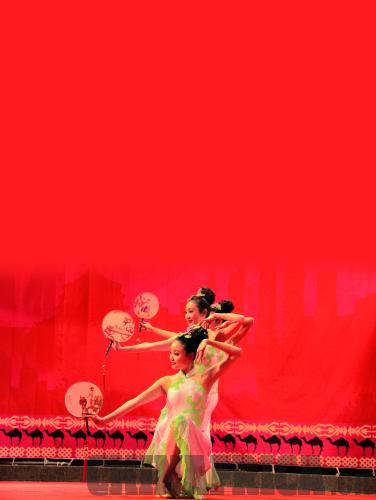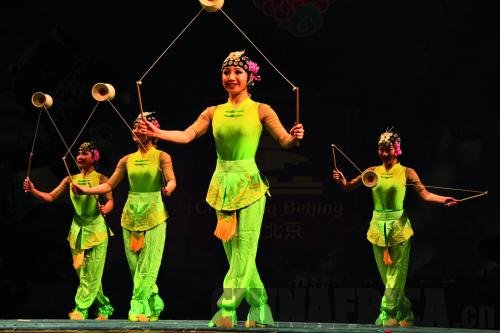|
 |
|
ELEGANCE:Performers from Chongqing dazzle onlookers at a show in Benin |
Chunjie, otherwise known as Spring Festival, is the most important holiday for the Chinese people. Even though it falls after January 1st, it marks the time when more than 1 billion Chinese around the world celebrate their New Year. Now these celebrations are spreading far and wide to places such as Africa.
The beginning of 2012 on the African continent was marked by a "Happy Chinese New Year" event, which featured many Chinese artists and entertainers. The performers traveled through more than 10 countries, including Egypt, South Africa, Ethiopia and Senegal. All the while, the event built a platform for African and Chinese artists alike to inspire each other and demonstrate their respective cultures.
"Happy Chinese New Year" as an event was first launched in 2010. Organized by China's Ministry of Culture and Ministry of Education, it has become a window through which foreigners can learn about Chinese culture. The event acts as a package of activities in different countries.
In its third iteration this year, "Happy Chinese New Year" lasts from January to March. Over 300 cultural activities are held in over 140 cities across more than 80 countries and regions worldwide. Temple fairs, parades, handicraft shows, film exhibitions and cultural lectures have already begun to help ring in the Year of the Dragon.
 |
|
SHOW STOPPERS:Chinese performers do the diabolo in Lesotho |
Exchange and inspiration
The Tianjin Performing Arts Troupe gave a show on January 10 in Lilongwe, capital of Malawi. The International Conference Center with 1,500 seats was packed with 2,000 spectators, many had to stand to watch. Malawian President Bingu Wa Mutharika along with his wife and over 50 ministers were also in attendance.
Nearly 100 Chinese and African artists participated in the four-hour-long party. Throughout, the fabulous Chinese and Malawian folk performances kept the audience captive.
When Chinese singer Zhang Yanrong began to sing a traditional Malawi folk song in Chichewa, a local language, the first lady left her chair to dance with the music. All 3,500 other audience members joined in.
"I got the song track only a week before the journey," Zhang told China Culture Daily. "I slowed the 5-minute song into a 9-minute version and took a sheet of its lyrics transcribed into Chinese to help with pronunciation. I don't remember how many times I practiced it."
|